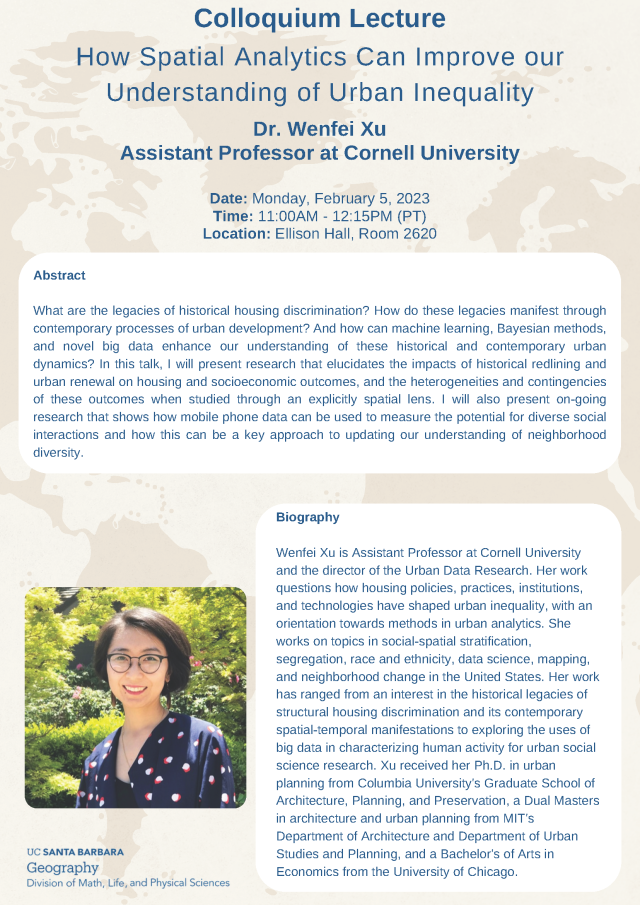Geography Colloquium Series: How Spatial Analytics Can Improve our Understanding of Urban Inequality

Join us Tuesday, February 20th at 3:30pm to hear Dr. Wenfei Xu, Assistant Professor at Cornell University, discuss her work: How Spatial Analytics Can Improve our Understanding of Urban Inequality
Abstract
What are the legacies of historical housing discrimination? How do these legacies manifest through contemporary processes of urban development? And how can machine learning, Bayesian methods, and novel big data enhance our understanding of these historical and contemporary urban dynamics? In this talk, I will present research that elucidates the impacts of historical redlining and urban renewal on housing and socioeconomic outcomes, and the heterogeneities and contingencies of these outcomes when studied through an explicitly spatial lens. I will also present on-going research that shows how mobile phone data can be used to measure the potential for diverse social interactions and how this can be a key approach to updating our understanding of neighborhood diversity.
Biography
Wenfei Xu is Assistant Professor at Cornell University and the director of the Urban Data Research. Her work questions how housing policies, practices, institutions, and technologies have shaped urban inequality, with an orientation towards methods in urban analytics. She works on topics in social-spatial stratification, segregation, race and ethnicity, data science, mapping, and neighborhood change in the United States. Her work has ranged from an interest in the historical legacies of structural housing discrimination and its contemporary spatial-temporal manifestations to exploring the uses of big data in characterizing human activity for urban social science research. Xu received her Ph.D. in urban planning from Columbia University's Graduate School of Architecture, Planning, and Preservation, a Dual Masters in architecture and urban planning from MIT's Department of Architecture and Department of Urban Studies and Planning, and a Bachelor's of Arts in Economics from the University of Chicago.